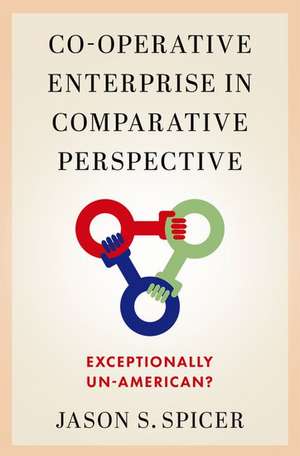Co-operative Enterprise in Comparative Perspective: Exceptionally Un-American?
Autor Jason S. Spiceren Limba Engleză Hardback – 19 dec 2024
Preț: 372.62 lei
Preț vechi: 511.73 lei
-27% Nou
Puncte Express: 559
Preț estimativ în valută:
71.33€ • 74.43$ • 59.80£
71.33€ • 74.43$ • 59.80£
Carte disponibilă
Livrare economică 08-14 februarie
Livrare express 05-11 februarie pentru 96.21 lei
Preluare comenzi: 021 569.72.76
Specificații
ISBN-13: 9780197665077
ISBN-10: 0197665071
Pagini: 328
Dimensiuni: 164 x 242 x 26 mm
Greutate: 0.59 kg
Editura: Oxford University Press
Colecția OUP USA
Locul publicării:New York, United States
ISBN-10: 0197665071
Pagini: 328
Dimensiuni: 164 x 242 x 26 mm
Greutate: 0.59 kg
Editura: Oxford University Press
Colecția OUP USA
Locul publicării:New York, United States
Notă biografică
Jason Spicer is an Assistant Professor in the Marxe School of Public and International Affairs at CUNY Baruch College, where he focuses on social and community entrepreneurship. Prior to joining CUNY, he spent five years on the faculty of the University of Toronto (St. George), where he oversaw the economic development concentration in the graduate urban planning program. He holds a PhD in Political Economy from MIT. He has published many articles on co-operatives and related alternative enterprise forms in academic journals across the social sciences.
